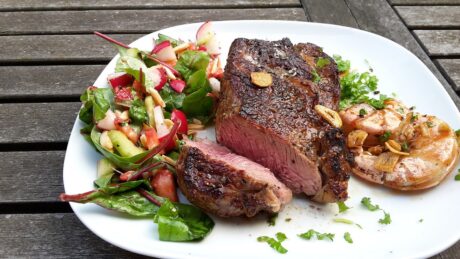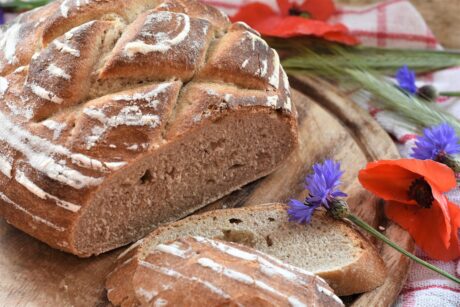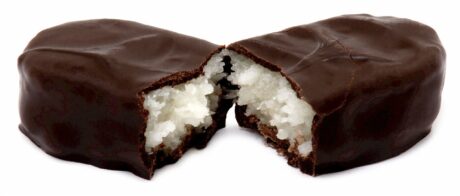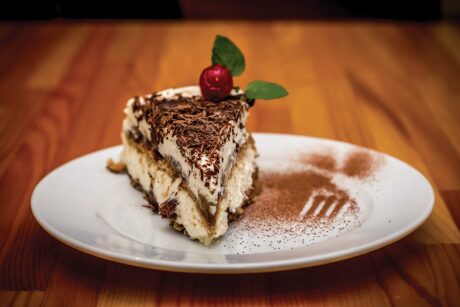
For many who know me socially, I am the one who devours a lot. At parties, I am the one picking giant steaks, double burgers, and repeats on desserts. I have never cared about any specific diet. I eat what I like when I feel like it, and as much as I please. A close family member, who is an authority on nutrition and weight loss, recently commented that I have very healthy eating routines. How is that possible?
I am sharing my lifestyle practices because they seem to work for me. Due to a minor disability, I never was attracted to sports. I do not exercise regularly. I am 5-foot-8, and my weight stays stable at around 156 pounds, which, according to experts, is a healthy weight for my body type. During the holiday feasts, for a few days, it jumps close to 160 pounds, but I feel most comfortable when it is about 154. I reached the age of 68 with no ongoing, severe health problems. Physically and mentally, I still feel the same as when I was in my 20s. I know that it will not last forever, but in the meantime, I enjoy every single minute of it.
I am sharing my ways of staying slim and healthy, although I am not an expert. Some readers may find helpful and inspiring my layman’s observations, but please be skeptical because what worked for me might not be suitable for others.
The benefits of poverty
My grandparents were farmers and craftsmen. They did hard, physical work, which required good nutrition. With food being expensive, to survive, they developed strategies of eating as little as possible to get what they needed. High-calorie foods, such as meats and fats, were rationed proportionally based on the amount of a person’s physical work. Meals had a very rigid schedule, served three or four hours apart. Despite the scarcity of food, no one ever starved.
During my childhood, food was still expensive and hard to get; hence, despite our urban lifestyle, my parents kept most of the rules they learned when growing up. They were very particular that we ate a nutritious breakfast before leaving for school. They tried to have dinner and supper always at the same time. My mother was firm in denying us sweets before a meal. She reasoned that, after snacks, we would not eat as much dinner, and soon after would reach for more snacks. Sweets would not give us the nutrients we needed.
I commuted to high school and, occasionally, stayed longer in town, returning home after dinner time. In these instances, I often missed dinner because fast food, as we know it now, was nonexistent in Poland then. I soon realized that after skipping a meal, for a short time, my hunger was very annoying, but then it subsided, giving me a blissful feeling of lightness of an empty stomach. Also, it put me on a higher alert. I felt energized; my mind seemed to be sharper, and I was more inclined to take on tasks that otherwise, I would prefer to postpone. I was joking then that a little hunger triggered my atavistic instincts, mobilizing my brain and body to hunt for food. Soon, I noticed that when in that stage, I was creative and more productive.

High-calorie food is good
With the scarcity of food in Poland then, doctors recommended that after a heavy meal, one should lie down for at least 20 or preferably 40 minutes, doing nothing but not falling asleep. This way, the body could put all its resources into digestion. The logic behind this was that our body is a machine that converts food into energy we need to function. In our eating habits, we need to make this food-processing mechanism as efficient as possible. In particular, if our blood circulation is busy with food digestion, it cannot provide oxygen to our muscles or our brain. Relaxing after a heavy meal allows our body to digest food faster, providing nutrients our body needs later for intensive physical or mental work.
We should eat only high-calorie food. With low-calorie meals, we need more of less nutritious food. Our body needs more energy to digest a larger mass of useless food. People eating high-calorie food can use that energy for being productive or just enjoying life. With high-calorie, nutritious meals, we have a chance of learning body signals to curb our appetite. This way, I can eat what I like as much as I like, and when I feel like it because, without me thinking about it, my body curbs my cravings when it has enough nutrition.
This is almost impossible for a person consuming mostly low-calorie food. That person needs to eat more of low-calorie food to get the same energy. Then that person needs more food so that the body can digest a larger mass of worthless food. Resources that are needed for digesting that extra food are not available for other mental or physical tasks. People eating mostly low-calorie food have less available energy to be mentally and physically active; hence, they are prone to gain weight.
On her TV show, Oprah Winfrey recommended many low-calorie foods, but at the same time was promoting the colonoscopy. I used to joke that there was a connection because our body needs to work harder when digesting low-calorie meals, increasing the risk of developing illnesses in the digestive tract.
The animal instinct
I recall a TV show from a zoo about chimpanzees, which I saw in my early teens. The keeper was throwing apples into the cage. The apes were biting them and then throwing them back. The narrator explained that the chimpanzees were not hungry; therefore, they only ate the rich-in-nutrients seeds and were throwing the rest of the apples away. It sounded obvious to me because I already was very particular that when eating an apple, I also ate its seeds. I recall reading somewhere about the nutritional value of these seeds. But how did the chimps know the same?
A few years later, I saw on TV a report from an intriguing experiment by Soviet scientists. They brought from the African bush several wild chimpanzees, and for three summer months, they dropped them on a small forested island, on a northern lake near the border with Finland. From a few observation stations, scientists tried to find out how these animals would adapt in a completely foreign environment, in particular, how they would find food. In the beginning, the chimpanzees received some bananas, but not enough to be satiated. As the scientists expected, the apes tried many wild fruits. Surprisingly, the apes did not eat poisonous berries. They bit into them, then spit them out and never tried them again. Gradually, the chimpanzees confined on the island developed a taste for the leaves of one of the species of trees growing there. By the end of summer, these leaves became their staple food. Unfortunately, I do not remember what tree it was. Scientists looked closer at that tree and found out that up to the end of the 19th century, for poor peasants in northern Russia, a soup made from the leaves of that tree was the primary food during summer. Again, how did the chimpanzees figure it out?
I recall that roughly at that time, one evening, my mother found me roaming in the kitchen without a particular objective. She asked if I was hungry, as she knew my huge appetite. Her question made me realize that I would not mind a snack. I did not like any of her suggestions. I ended up taking a big carrot as a treat. She commented that I had “those strange tastes.”

I connected these strange tastes with the instinctive behavior of chimpanzees who knew about the nutritional value of seeds, could teach themselves to avoid eating poisonous berries and could detect the nutritional value of leaves from a tree not known to them before.
Jokingly, I started saying that I eat whatever I like because my ape-like instinct tells me what is right for me. Gradually, I realized that besides big steaks, double hamburgers, and sweets, I developed a big taste for almost all kinds of fruits and vegetables. I still like to have a carrot as a snack, but it could be just as well a cucumber, radishes, or a celery stick. For my main meals, I always have greens as side dishes. I love cabbage; I have almost addictive inclinations to eat some kinds of lettuce. I have urges for avocados or olives. I love tomatoes. Apples, pears, and bananas are my favorite snacks during driving. For snacking, when at the desk, I have all kinds of dry fruits, nuts, and seeds. Also, I like dark chocolate and have a few favored cookies, sweets, and pastries. I never developed an attraction to potato chips and other similar snacks.
Sugar everywhere
During my childhood, we all sweetened our tea and coffee. I was in my late teens when someone suggested that coffee with no sugar tastes better. We tried it, and soon all of us in my family stopped sweetening our tea and coffee. Our decision could be influenced by the introduction of new kinds of tea and coffee on the Polish market at that time. Before that, there was only one kind of tea and one kind of coffee we could buy. With sugar, we could not enjoy new tastes in their fullness.
After 35 years in the United States, Polish food is for me just one among many ethnic varieties. But, I firmly prefer European sweets and pastries. They are sweet, but still have that richness of various tastes. With a few notable exceptions, most pastries and candies in the United States are just tasteless but colorful chunks of sugar. Some chocolate bars are a noteworthy exception. In recent years I have found in some stores more pies and cookies that are tasteful.

I bring this up because, for some time, the media blame sugar for obesity in America. By looking closer, I realized that, as with pastries, I am not too fond of sugar-rich sodas, and I find less tasteful any foods with high sugar content. I noticed as well that Americans prefer very sweet fruits. Radishes I can buy now rarely have that unique spiciness I remember from my youth. They taste like nothingness with a little touch of sweetness. I take with a dose of skepticism the opinions of experts that sugars are addictive. My experience suggests that the key is in developing a desire for a wide variety of tastes. With that, the sweetness is expected in sweets, but not anywhere else.
I observed that small children did not even care to pick up cheap candies dropping from the piñata. Also, I noticed that trick-or-treaters were excited when I gave them Polish candies, and visibly disappointed when next year I forgot to buy candies in the Polish store and at the last minute bought them in a local supermarket. We can hope that the market will notice this.
During my college years, I noticed that in stressful situations, especially when a little hungry, I was getting anxious. I learned that under stress, my body burns more sugar, and if I had not eaten recently, I might have a sugar level that was too low, thus further increasing my anxiety and worsening the condition. As a remedy, I always keep around candies, cookies, or high-sugar, high-calorie chocolate snack bars.
This does not mean that everyone should eat sweets when under stress. Everyone should get a better understanding of how their body works and adjust their diet accordingly. The objective is to avoid medications, if possible. Dr. Google can be a good start, but any major health decision deserves a consultation with a family physician.
Keeping order in the chaos
My work and family schedule do not allow me to eat regularly as my grandparents did. My days are never alike, but I try to start them the same. Regardless of my schedule, I always get up at the same time and eat breakfast. For almost 40 years, my breakfast has been the same: a bowl of old-fashioned oat flakes with whole milk. For the record, many people use cold milk; I use hot milk, believing that my body should not use its energy to warm up my food.
On weekends we often have a more elaborate family breakfast; when traveling, I eat whatever the place and circumstances allow. The bowl of oatmeal can get me going for the full day, even if I miss lunch. When I started this breakfast, I realized that my grandfather was feeding oats to horses before a day of hard work. Recently, I have noticed that nutritionists promote oats in many sophisticated and costly meals. I still keep it simple and cheap.
For lunches, I prefer a plain sandwich prepared at home. If working outside, I take with me a sandwich from home. It is simpler, cheaper, and takes less time. I avoid heavy meals after 6 p.m. If I arrive home late, even when hungry, I prefer a light meal. But, on an evening out, if the food is good, I allow myself some gluttony. I might not sleep the best that night, but for the next day or two, I can easily skip a meal and survive on a few apples and a chocolate bar. This way, with an almost empty stomach, I am not very hungry but full of energy.
Eat to live, not live to eat
For me, eating is something I need to do to fulfill my life interests and aspirations. Drawn into something engaging, I might forget about hunger. Even if I agree to do some work out of the necessity to pay bills, not out of my genuine interest, I do my best to complete it as if my life depended on it. If I end up in an event in which I prefer not to take part, I see this as an opportunity to learn something new.

As I mentioned earlier, I do not exercise regularly. But even when sitting in front of the computer, writing, every few minutes I get up and pace around the room, bouncing thoughts. When the family sits in front of the TV, I am the first one who is eager to bring from the kitchen whatever someone might need. I do it with little thinking; it is that my animal instinct prompting me to stretch and take a few steps. A few years ago, I installed one of these health applications on my phone. I noticed that even during a quiet day, when I spend the most time on the computer, just by pacing around our small house, I walk about one mile per day. I do not do it regularly, but enjoy long walks away from busy streets.
In my childhood my parents formed my eating habits and general life attitude. I got my good health and my cheerful nature with minimal effort on my own. I embraced and rationalized what my parents taught me. A person struggling with obesity can conclude from my experience that focusing on diets might not be the best way to lose weight. Finding a way to stay active, doing what we like, might be the first step. Seeing the bright side of a job we might prefer to leave but have to keep, might be another one. Also, having a side hustle, be it a side job or a hobby – can make our lives more exciting. This way, eating will not be a subconscious reward for the lack of appreciation we feel we deserve. The goal is to eat whatever it takes to have an enjoyable life, not to enjoy life by eating. We eat to live, not live to eat.
____________________________________________________
A version of this text was originally published by Data Driven Investor

 Many tell us what to think. I ask my readers to be skeptical. Question me and others.
Many tell us what to think. I ask my readers to be skeptical. Question me and others. 